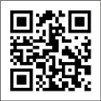連関資料 :: 英語
資料:1,129件
-
 英語科教育法3和訳6章
英語科教育法3和訳6章
- 日大通信教科教育法英語Ⅲテキスト「英語科教育法Ⅲ」(H27,28年度) 第六章"Factors Affecting the Efficiency of Second Language Learning"の和訳です。 市販の翻訳本がない全文英語のテキストなので、読み込むのに相当時間のかかる教科だと思われます。意訳をせず、英単語1つ1つの意味を捉えられるよう訳してあります。 レポートにはコピペせず、意味を自分の言葉で捉え直して活用して下さい。 科目修得試験(例年ランダムで出題されるテキスト本文の意訳)の勉強にも大いに活用できると思います。 参考文献、引用はありません。
- 英語科教育法 日本大学 英語 和訳 通信 日大
 880 販売中 2015/10/19
880 販売中 2015/10/19- 閲覧(3,269)
-
 [日大通信]英語Ⅲ 分冊1 合格レポート
[日大通信]英語Ⅲ 分冊1 合格レポート
- 資料に関する説明及び紹介文句を入力してください。 (検索、露出及び販売にお役立ちます)
- 知識 技術 世界 未来
 550 販売中 2013/11/05
550 販売中 2013/11/05- 閲覧(2,370)
-
 PB1040 英語 2単位目 合格レポート
PB1040 英語 2単位目 合格レポート
- 明星大学 通信教育課程【PB1040 英語 2単位目】の合格レポート(優評価)です。 共に通信教育で教員を目指す者として、ぜひお役に立てれば嬉しく思います! ※丸写しはせず、あくまで参考としてご活用ください。 【英語 2単位目 課題】 1.小学校英語教育における「読むこと」の指導目標、指導内容・方法、指導上の留意点をまとめなさい。その際、学年に応じた指導の違いにも言及すること。 2.「聞くこと」について、児童が聞いて<わかったと感じる>ような体験をさせるために気を付けるべき点と、具体的な活動例を示しなさい。活動例を示す際は、対象学年を明らかにすること。 3.『小学校教員を目指す人のための外国語(英語)教育の基礎』(明星大学出版)の「発音コーナー1」を1か所選び、以下の質問に答えなさい。 a) 各発音を授業でどのように扱うか、学年を明らかにした上で、指導計画(5分程度)を書きなさい。 b) あなたが指導計画(a)に沿って授業を行う際、現段階でどのような力が不足しているか、分析結果を書きなさい。(注:この課題は『小学校教員を目指す人のための外国語(英語)教育の基礎』の全Unitを学習した上で取り組むこと)
- 英語 PB1040 明星大学 明星 レポート 合格 通信 教育 教職 教師 教員 大学 課題 答案 小学校 2単位目 2020 2021 2022
 550 販売中 2022/11/25
550 販売中 2022/11/25- 閲覧(2,976)
-
 初等英語科教育法1単位目
初等英語科教育法1単位目
- 難関といわれる英語科目の一発合格レポートです。 お忙しい方の参考になれば幸いです。◆課題1◆外国語教育における小中学校の学びの接続と連携の意義,および接続・連携をはかるために重要なポイントをまとめなさい。その上で,小学校教員として外国語教育の接続・連携を行う上でどのような役割を果たしたいと考えるか,自身の見解を述べなさい。 ◆課題2◆主体的・対話的で深い学び(いわゆるアクティブ・ラーニング)の効果・特徴を説明しなさい。その上で,小学校外国語(英語)教育において主体的・対話的で深い学びを実現するための授業の進め方・留意点を説明しなさい。 ◆課題3◆ 小学校英語教育において,音声指導から文字指導へスムーズに移行するためには,どのような点に配慮すべきか。具体的例を挙げながら説明しなさい。 ◆課題4◆ さまざまな評価の方法について,特徴と留意点をまとめなさい。その上で,小学校英語教育担当者として評価を行う際に,あなたが大切だと思う点をまとめなさい。
- 明星大学 初等英語科教育法 2022
 1,210 販売中 2022/12/23
1,210 販売中 2022/12/23- 閲覧(1,356)
-
 PB1040 英語2単位目 合格レポート
PB1040 英語2単位目 合格レポート
- 明星大学通信教育学部 PB1040英語2単位目 合格レポートです。 使用テキスト 小学校教員を目指す人のための外国語(英語)教育の基礎髙橋和子・佐藤玲子・伊藤摂子明星大学出版部 【課題】 1.小学校英語教育における「読むこと」の指導目標、指導内容・方法、指導上の留意点をまとめなさい。その際、学年に応じた指導の違いにも言及すること。 2.「聞くこと」について、児童が聞いて<わかったと感じる>ような体験をさせるために気を付けるべき点と、具体的な活動例を示しなさい。活動例を示す際は、対象学年を明らかにすること。 3.『小学校教員を目指す人のための外国語(英語)教育の基礎』(明星大学出版)の「発音コーナー1」を1か所選び、以下の質問に答えなさい。 a)各発音を授業でどのように扱うか、学年を明らかにした上で、指導計画(5分程度)を書きなさい。 b)あなたが指導計画(a)に沿って授業を行う際、現段階でどのような力が不足しているか、分析結果を書きなさい。(注:この課題は『小学校教員を目指す人のための外国語(英語)教育の基礎』の全Unitを学習した上で取り組むこと)
- 明星大学 明星 レポート 合格 通信 英語 小学校
 330 販売中 2023/06/12
330 販売中 2023/06/12- 閲覧(1,731)
-
 英語学概説 分冊1 科目コード 0085
英語学概説 分冊1 科目コード 0085
- 発話行為とは、コミュニケーションを行うために遂行される行為で、一定の音声や文法上の語句、一定の意味を持つ文を発する行為のことである。話し手は聞き手にXという。その例として①彼は私に「食べると太るぞ」といった。 発話内行為とは、発話行為を通して、疑問、以来、命令、約束、警告、忠告、報告、祝福、感謝、などの機能を担う行為が成立するものである。Xということによって、発話者はYを主張する。その例として、①彼は私に「食べると太るぞ」と警告した。 発話媒体行為とは、発話することにより、何らかの効力を結果として生み出す行為であり、いわば、コニュニケーション行為の副産物である。Xということによって、発話者は聞き手にYということを納得させる。つまり聞き手に対する効果を表している。その例として①彼は私に「食べると太るぞ」といって不安にさせた。 発話内行為は、基本的には、話し手の伝達意志を、聞き手に認識させることによって成立し、その行為の効力としての結果は関与しないが、発話媒体行為は、発話内行為とこれを介して生じる効果が関与する。 つまり、発話内行為は、しかるべき適切な状況において、適切な意志に基づき、明示
- コミュニケーション 言語 表現 内容 会話 効力 日本大学 通信教育
 1,100 販売中 2009/09/03
1,100 販売中 2009/09/03- 閲覧(2,499)




![[日大通信]<strong>英語</strong>Ⅲ 分冊1 合格レポート [日大通信]<strong>英語</strong>Ⅲ 分冊1 合格レポート](/docs/950023859848@hc12/107590/thmb.jpg?s=b&r=1383456919&t=)










